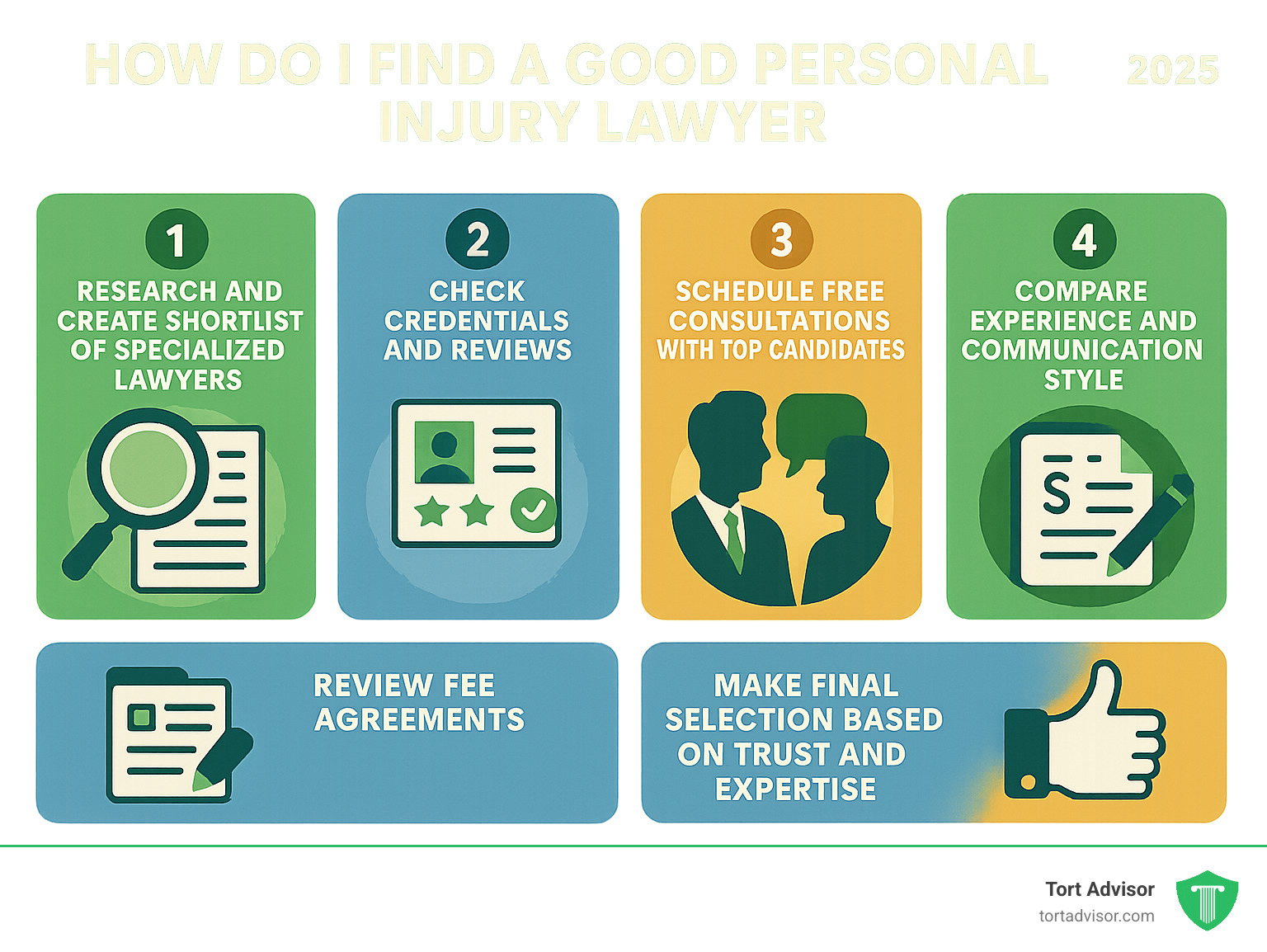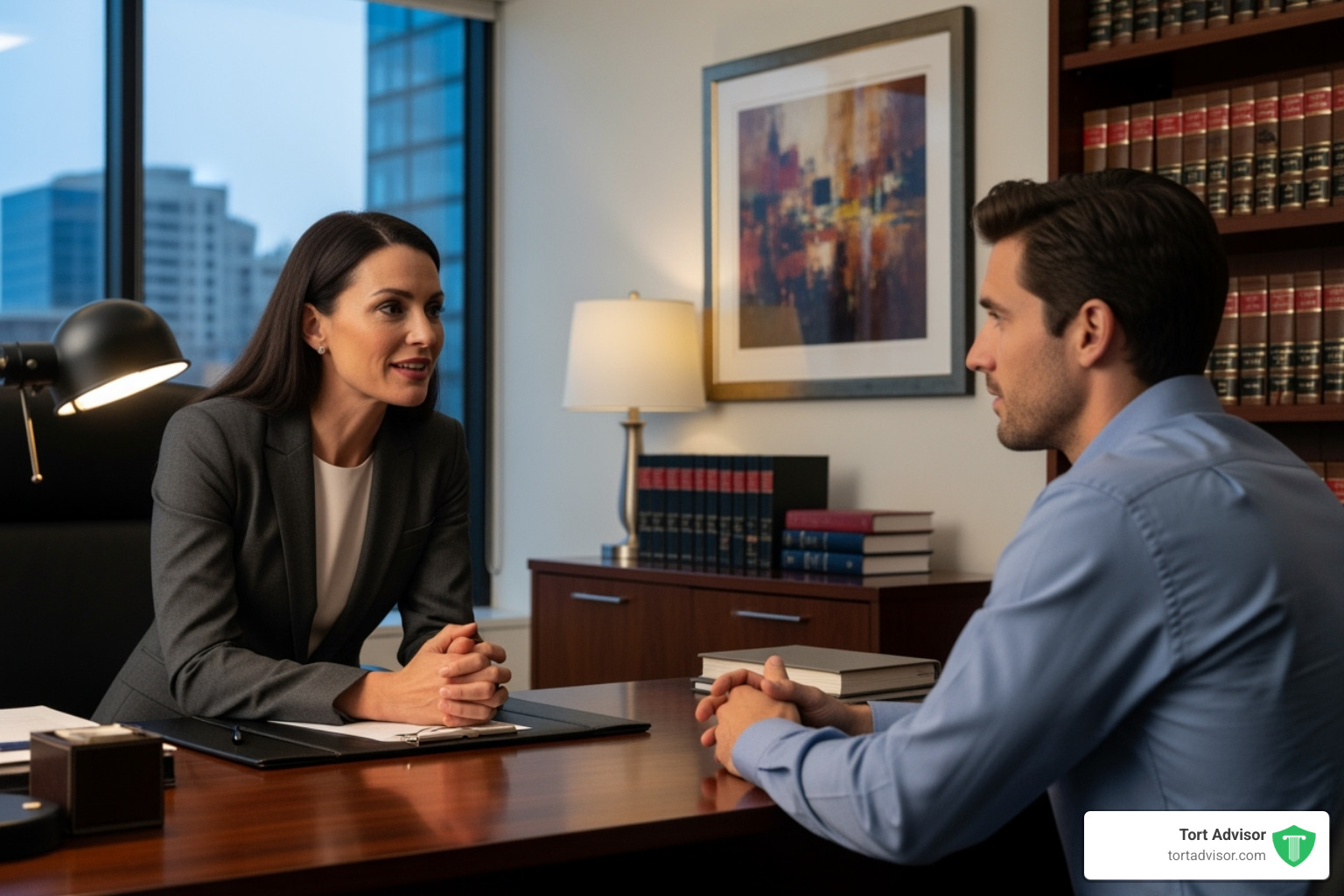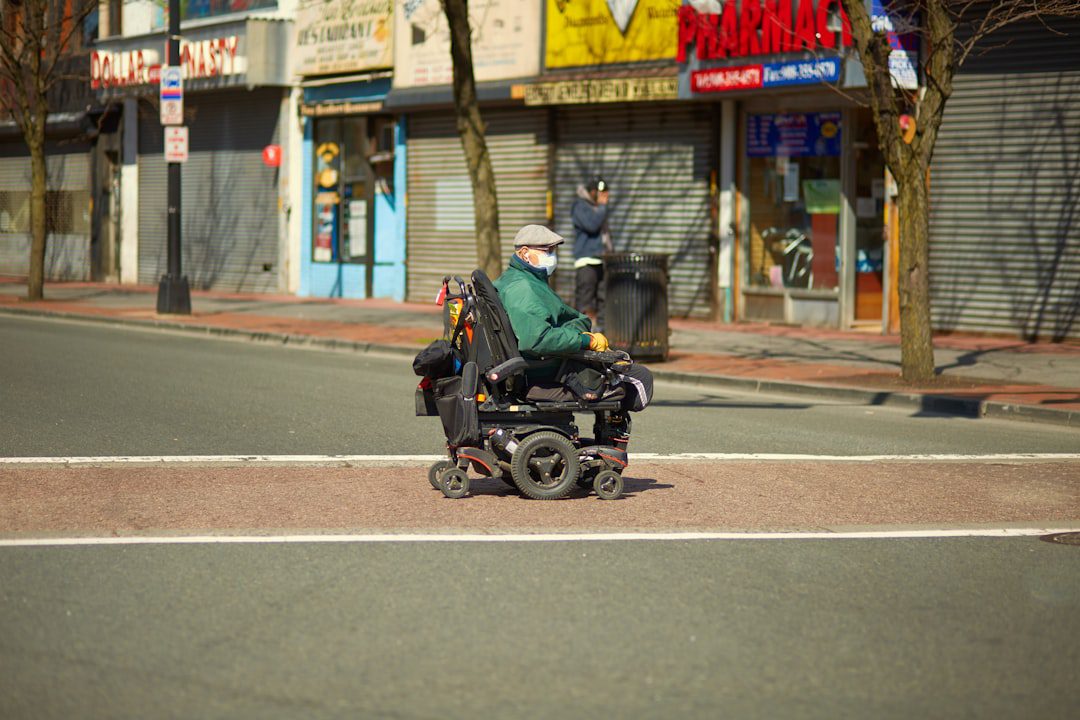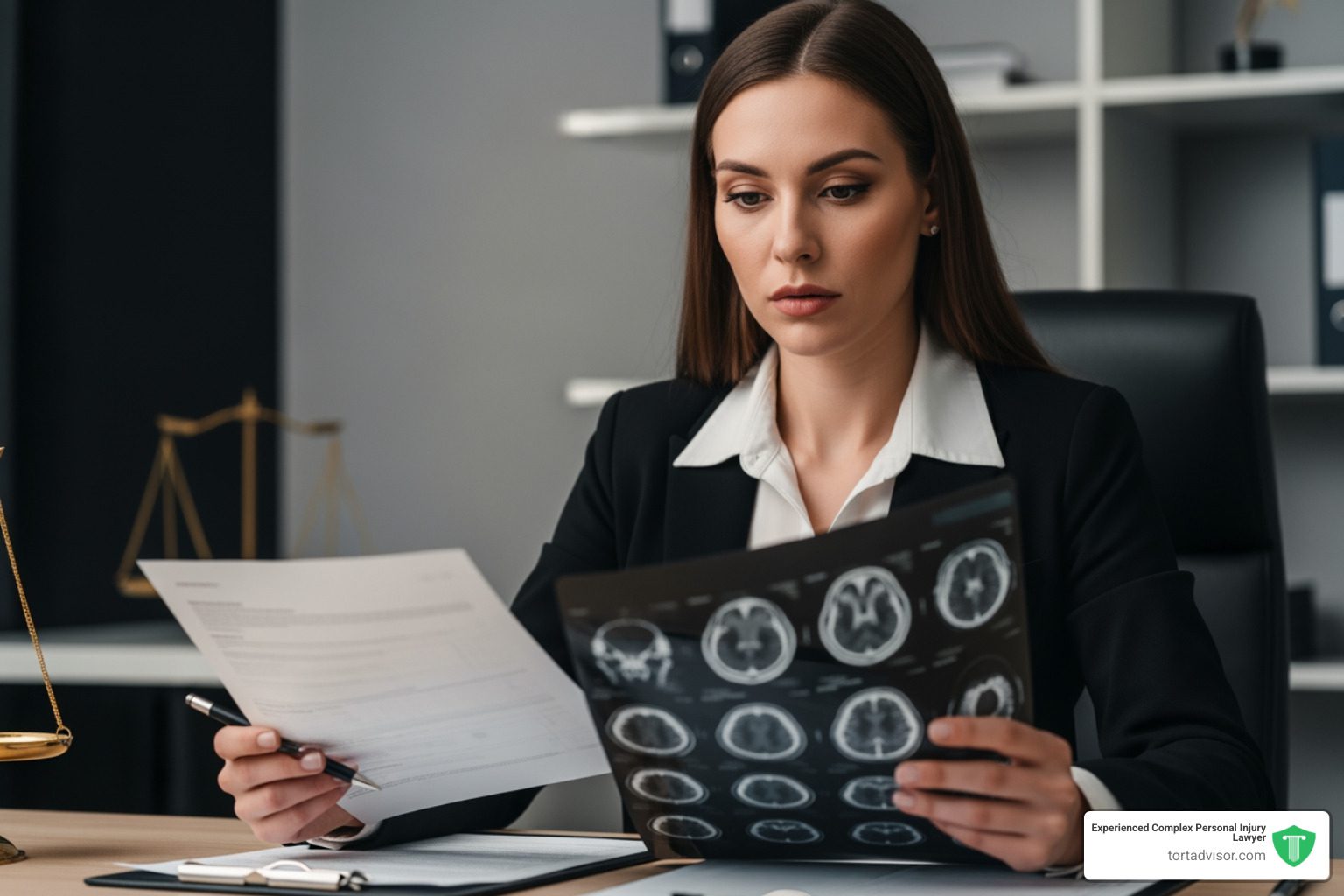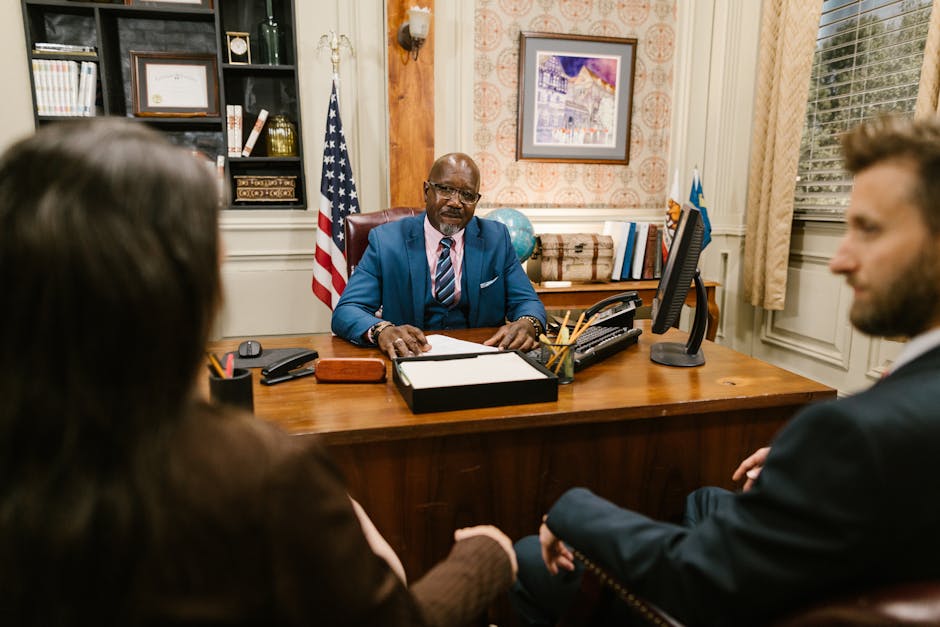


Why Finding the Right Personal Injury Lawyer Can Make or Break Your Case
After an injury, asking how do I find a good personal injury lawyer is a critical first step. The legal system is complex, and the right attorney can be the difference between fair compensation and a devastating financial loss. This guide will help you find quality legal representation.
Essential Steps to Find a Good Personal Injury Lawyer:
- Look for specialized experience – Choose lawyers who handle your specific type of case
- Verify credentials – Check state bar licensing and disciplinary history
- Read reviews critically – Focus on peer reviews and verifiable case results
- Schedule free consultations – Meet with 3-5 lawyers to compare experience
- Understand fee structures – Ensure contingency fees with no upfront costs
- Assess communication style – Choose someone responsive and easy to understand
The stakes couldn’t be higher. According to the Insurance Research Council, injury victims represented by lawyers win 3.5 times more compensation than those who go it alone. Many people, however, settle for the first lawyer they find or fall for flashy advertising instead of doing proper research.
When you’re dealing with medical bills and lost wages, you don’t want a lawyer who treats your case like just another number. Insurance companies have teams of attorneys working to minimize your payout. You need an equally skilled professional fighting for your rights.
My experience in the legal technology field has shown me that finding the right lawyer requires a systematic approach. It’s about knowing the red flags to avoid and the green flags that signal quality representation.
Step 1: Identifying the Essential Qualities of a Top Personal Injury Lawyer
When you’re wondering how do I find a good personal injury lawyer, it’s easy to get caught up in impressive office décor or confident promises. But what really matters goes much deeper.
Choosing a personal injury lawyer is like choosing a surgeon; you need a specialist, not a generalist. You need someone who lives and breathes personal injury cases like yours.
The best lawyers share several key traits: specialized experience in your type of case, a proven trial record, respect among their peers, clear communication skills, adequate firm resources to fight insurance companies, and unshakeable ethical standards. These are the difference between fair compensation and walking away with far less than you deserve.
Why a Lawyer’s Specific Experience is Non-Negotiable
Personal injury law isn’t one-size-fits-all. A lawyer who excels at medical malpractice might struggle with a car accident claim. Each case type has its own playbook, and you want an attorney who knows yours by heart.
For example, if you were injured in a car accident, the right lawyer will know to secure your vehicle’s black box data, work with accident reconstruction experts, and recognize delayed-onset injuries. They’re familiar with Common Motor Vehicle Accident Injuries and know what evidence is critical.
Brain injuries present different challenges, requiring lawyers who understand complex medical evidence and long-term care costs. That’s why specialized Brain Injury Attorneys Near Me exist—because generic experience isn’t enough. Your lawyer should be able to quickly assess your case’s potential value and obstacles. Vague answers are a red flag.
Assessing a Lawyer’s Reputation and Track Record
Anyone can create a flashy website, but a strong reputation is earned through results. When evaluating a lawyer’s track record, dig deeper than their homepage testimonials.
Start with peer reviews from other lawyers. If other attorneys respect someone enough to recommend them, that carries serious weight. Client testimonials matter too, but look for specific details about communication and the case process. Be wary of reviews that sound too generic.
Bar association standing is a must-check. Always visit your state bar’s website to verify the lawyer is licensed and has no disciplinary history. This simple step can prevent a costly mistake.
Here’s what separates the best from the rest: they’re prepared to go to trial. Many firms are “settlement mills” that push for quick, low offers. Top attorneys are willing to fight in court, and that reputation alone often leads to better settlement offers from insurers. Avoid lawyers who rely on flashy ads or promise unrealistic results. The best attorneys get most of their clients through referrals—that’s the kind of reputation you want.
Step 2: Your Search Plan: How Do I Find a Good Personal Injury Lawyer?
Finding the right personal injury lawyer requires thorough research and a systematic approach. The goal is to make an informed decision, not leave it to chance.
Before you start, list your priorities. Is it a specific practice focus, a strong trial record, or a convenient location? Having these in mind will guide your search.
Starting Your Search: Where to Find Potential Candidates
How can I research and find potential personal injury lawyers? A multi-pronged approach yields the best results.
Here are some reliable sources for finding candidates:
- Personal Referrals: Word of mouth is powerful. Ask friends, family, or other professionals you trust for recommendations.
- State Bar Associations: Most state bars offer referral services and directories, which are excellent for finding licensed attorneys and checking their disciplinary history.
- Reputable Legal Directories: Online legal directories can be a useful resource for finding attorneys, often including peer reviews and client testimonials. Look for directories that filter lawyers based on professional achievement and peer recognition to help ensure quality.
- Law Firm Websites: Once you have a few names, visit their websites. Look for detailed information about their practice areas, case results, and attorney bios.
The goal is to create a shortlist of candidates for an initial consultation.
How do I find a good personal injury lawyer online without falling for marketing tricks?
An online presence is crucial, but it can be hard to separate quality from clever marketing. What are the common mistakes to avoid when choosing a personal injury lawyer?
- Don’t Choose Based on Flashy Ads Alone: Competence isn’t measured by billboard size. Focus on actual experience and track record.
- Verify Credentials with Your State Bar: Always confirm a lawyer is licensed and in good standing. This simple check can save you from hiring someone with a questionable past.
- Read Testimonials Critically: Look for specific, detailed accounts of a client’s experience rather than generic praise.
- Be Wary of “Ambulance Chasing”: If a lawyer contacts you unsolicited after your accident, it is unethical and a major red flag. Report such conduct to your state’s bar association.
- Avoid Firms Promising “Quick Settlements”: A firm focused on speed might settle your case for less than its true value. A good lawyer aims for fair compensation, which sometimes requires patience.
- Keep Your Search Private: Avoid asking for recommendations or discussing your case on public social media platforms, as this information could potentially be used against you.
- Understand Geographic Relevance: It’s often best to choose a lawyer who understands the local laws and court systems where your case will be heard.
Step 3: The Interview: Nailing the Initial Consultation
You’ve done your research and created a shortlist. Now it’s time to schedule initial consultations. Most personal injury lawyers offer these for free, giving you a golden opportunity to ask questions, assess their communication style, and decide if they’re the right fit. This step is key to answering “how do I find a good personal injury lawyer” for your specific needs.
Before your meeting, gather all relevant documents: police reports, medical records, proof of lost wages, and any correspondence with insurance companies. Being prepared helps the lawyer give you a more accurate assessment of your case.
During the consultation, pay attention to how the lawyer communicates. Do they listen, ask clarifying questions, and explain legal terms simply? A great lawyer will be honest and realistic, not make wild promises. Your comfort and trust are incredibly important.
Understanding the Cost: Fee Structures and Agreements
What are the different fee structures for personal injury lawyers, and what should I clarify? This is a critical discussion, so don’t be shy.
The vast majority of personal injury attorneys work on a contingency fee basis, meaning they only get paid if they win your case. If you don’t win, you typically owe nothing for their legal services. This structure allows anyone to pursue justice, regardless of their financial situation. You can learn more about this common fee structure here: contingency fee.
Here’s what to clarify about contingency fees:
- The Percentage: The fee typically ranges from 25% to 40% of your recovery, with 33.3% being common. Confirm if this percentage changes if the case goes to trial.
- Case Costs and Expenses: Attorney fees are separate from “case costs” like court filing fees, expert witness fees, and costs for obtaining records. Clarify if the firm covers these costs upfront and how they are reimbursed.
- “Off the Top” vs. “After Attorney Fees”: This detail is crucial. Ask if costs are deducted from the settlement before or after the lawyer’s percentage is calculated. For example, on a $100,000 settlement with $10,000 in costs and a 30% fee: If costs are deducted before the fee, the lawyer gets $27,000 (30% of $90k), and you get $63,000. If costs are deducted after the fee, the lawyer gets $30,000 (30% of $100k), and you get $60,000.
- What Happens if You Lose? In a true contingency agreement, you shouldn’t owe attorney fees if you lose. However, you must clarify if you would still be responsible for the case costs.
- No Upfront Fees: A true contingency fee agreement means you should not be asked for an upfront retainer for the lawyer’s time.
Understanding these financial details is vital for managing expectations, similar to understanding how settlements are calculated in complex cases like those discussed in How Much Does Mass Tort Lawsuits Receive?.
Key Questions to Ask a Potential Personal Injury Lawyer
Here are essential questions to ask during your consultation:
- “What is your specific experience with cases like mine?” Ask about the number of similar cases they’ve handled and their outcomes.
- “What are the potential strengths and weaknesses of my case?” A good lawyer will provide a realistic, transparent assessment.
- “Who will be my primary contact and who will work on my case?” Understand who is responsible for your case and who you will communicate with most often.
- “How often will I receive updates on my case?” Set clear communication expectations from the start.
- “What is your philosophy on settlement versus going to trial?” You want a lawyer who is prepared to fight for you in court if a fair settlement isn’t offered.
- “How do you value a case like mine?” They should be able to discuss the types of damages you can recover (medical bills, lost wages, pain and suffering).
- “What are your fees and how are case costs handled?” Reiterate this to ensure you have complete clarity on the financial agreement.
- “What information do you need from me to move forward?” This helps you get organized and streamline the process.
Asking these questions will help you find a lawyer that feels right for you.
Frequently Asked Questions about Choosing a Lawyer
Choosing a personal injury lawyer can be daunting. Here are answers to some of the most common questions.
What if a lawyer doesn’t want to take my case?
It can be disheartening if a lawyer declines your case, but don’t view it as a final judgment on its merit. It’s often a business decision for the firm.
Common reasons a lawyer might decline a case include:
- The potential recovery is too small to justify the firm’s time and resources.
- The odds of winning are low due to weak evidence or other legal problems.
- It’s outside their specialization or their current caseload is too heavy.
- The statute of limitations (the deadline for filing) is too close or has already passed.
If a lawyer declines your case, you can politely ask for their reasoning. Most importantly, always seek a second or even third opinion. Different attorneys have different perspectives and resources. One lawyer’s rejection is not the end of the road.
How important is communication in the lawyer-client relationship?
What role does communication play in the lawyer-client relationship for personal injury cases? It is absolutely critical. Good communication is fundamental to your peace of mind during a stressful time.
You need a lawyer who is accessible and keeps you informed. Regular updates are essential, and your calls and emails should be returned promptly. A good lawyer will explain the legal process, manage your expectations honestly, and avoid confusing jargon. This transparency builds the trust necessary for a successful partnership. As we emphasize at Tort Advisor, connecting with Trusted Personal Injury Attorneys who prioritize clear communication is key. If a lawyer is hard to reach during the consultation phase, consider it a major red flag.
What are the typical steps in a personal injury case?
Understanding the general process can reduce anxiety. What are the typical steps involved in a personal injury legal process? While every case is unique, here is a common sequence:
- Initial Consultation & Investigation: After you hire a lawyer, they will conduct a thorough investigation, gathering evidence like police reports, medical records, and witness statements.
- Demand and Negotiation: Once your damages are calculated, your lawyer will send a demand letter to the at-fault party’s insurance company. This begins the negotiation phase, where your lawyer will work to secure a fair settlement.
- Filing a Lawsuit: If negotiations fail, your lawyer may advise filing a lawsuit. This starts the formal litigation process.
- Findy: After a suit is filed, both sides exchange information through written questions, document requests, and depositions (sworn, out-of-court testimony).
- Mediation/Arbitration: Before trial, many cases go to mediation (a facilitated negotiation) or arbitration (where a neutral party makes a decision). The vast majority of personal injury claims are resolved at this stage.
- Trial: If no settlement is reached, the case proceeds to trial, where a judge or jury will hear the evidence and render a verdict. This is rare for most personal injury cases.
- Resolution: Whether through settlement or a trial verdict, the final step is receiving your compensation. Your lawyer will disburse the funds according to your fee agreement. A skilled lawyer guiding you through these Personal Injury Lawsuits is crucial to protecting your rights.
Conclusion: Making Your Final Decision with Confidence
You’ve done the research, completed consultations, and asked the tough questions. Now it’s time to choose the lawyer who will fight for your rights.
Answering how do I find a good personal injury lawyer is about finding the right partner for your unique situation. The lawyer you choose is your advocate, your voice, and your guide. This decision deserves the careful thought you’ve put into it.
Making an informed choice puts you in control. When you select a lawyer based on their specific experience, track record, and communication style, you’re investing in peace of mind. This allows you to focus on healing while a skilled professional works to secure the compensation you deserve.
The right lawyer understands the true impact of your injuries. They know how to value your case and aren’t afraid to challenge insurance companies. Most importantly, they treat you like a person, not a case number.
The Insurance Research Council study we mentioned isn’t just a statistic—it shows that people with qualified legal help received 3.5 times more compensation. That can be the difference between financial struggle and having the resources to rebuild your life.
At Tort Advisor, we’ve seen how the right legal representation transforms outcomes. We work with highly skilled attorneys who have proven results in handling Personal Injury Lawsuits. Our vetting process connects you with professionals who combine expertise with genuine care for their clients.
Your injury was an accident, but your choice of lawyer shouldn’t be. Trust your research and your instincts to choose the advocate who gives you the confidence to move forward.
Free Confidential Case Evaluation
Complete the short form below to get an immediate FREE case review with an expert in your specific claim. Don't wait, your case could be time sensitive to file a claim.
Related Posts
Discover New Jersey disability benefits: TDI, FLI, SSDI, SSI rates, eligibility, applications & appeals for 2025-2026.
Hire a Depo-Provera lawsuit attorney now. Fight Pfizer for meningioma risks from injections. Free consult, MDL updates & settlements up to $1.5M.
Find top Miami florida car accident lawyers after your 305 crash. Get max compensation, navigate no-fault laws & choose the best experts now!
Diagnosed with cancer after Roundup? Learn about the monsanto roundup lawsuits, eligibility criteria, and how to pursue your claim.
Discover how do you qualify for a hair relaxer lawsuit: criteria, diagnoses, evidence & brands in uterine cancer MDL. Claim review now!
Find the best uber sexual assault lawsuit lawyer: expert guides, MDL experience, proven results & nationwide firms for justice.

